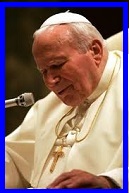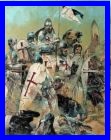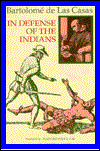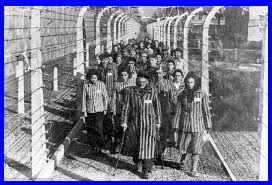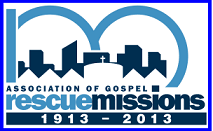Jesus Said "If You Don't Forgive
Others Your Heavenly Father Won't Forgive You"
Pope Asks Forgiveness for Errors Of the Church Over 2,000 Years
By ALESSANDRA STANLEYMARCH 13, 2000
Saying ''we humbly ask forgiveness,John Paul II today delivered the most sweeping papal apology ever, repenting for the errors of his church
over the last 2,000 years. We cannot not recognize the betrayal of the Gospel committed by some of our brothers, especially in the second millennium,''
the pope, dressed in purple robes for Lent, said in his homily. ''Recognizing the deviations of the past serves to reawaken our consciences to the
compromises of the present.''
The public act of repentance, solemnly woven into the liturgy of Sunday Mass inside St. Peter's Basilica, was an unprecedented moment
in the history of the Roman Catholic Church, one that the ailing 79-year-old pope pushed forward over the doubts of even many of his own
cardinals and bishops. He has said repeatedly that the new evangelization he is calling for in the third millennium can take place only
after what he has described as a church-wide ''purification of memory.
To underline the apology's religious significance, seven cardinals and bishops stood before the pope and cited some of the key Catholic
lapses, past and present, including religious intolerance and injustice toward Jews, women, indigenous peoples, immigrants, the poor and the unborn.
The pope also mentioned the persecution of Catholics by other faiths. ''As we ask forgiveness for our sins, we also forgive the sins committed by
others against us,'' he said. At the beginning of his pontificate, John Paul's boldest gestures were on the political front, confronting Communism in the Soviet Union,
Eastern Europe and Latin America and also challenging human rights violations and the economic injustices of capitalism. But the apology,
issued in the twilight of his papacy, is theologically more daring.
His effort to cleanse his church's conscience for the new millennium has already drawn criticism, but it is almost certain to mark his legacy deeply.
The apology does not just apply to individuals, but the church as a whole, and that is very important,'' the Rev. Lorenzo Albacete, who teaches
theology at St. Joseph's Seminary in Yonkers. Because it reflects this pope's desire to reconcile with other Christians and other religions,
people are tempted to view it as a tactic, but its immense spiritual importance to this pope lies in the fact that it did not come within a
diplomatic or theological agreement, but in the liturgy of the Mass during Lent and the Holy Year.''
The pope, broadening a process of reconciliation that began in the 1960's during the Second Vatican Council, has issued apologies before,
notably regretting in a 1998 document the failure of many Catholics to help Jews during the Holocaust. That document, ''We Remember: A
Reflection on the Shoah, disappointed many leading Jewish groups, which complained that the pope did not go far enough in apologizing for
the silence of church leaders, including the wartime pope, Pius XII.
Today, in the prayer dedicated to confession of sins against the people of Israel, John Paul did not mention the church's behavior
during the Holocaust, just as he did not elaborate on other sins of the church. He said, ''We are deeply saddened by the behavior of those
who in the course of history have caused these children of yours to suffer, and asking your forgiveness we commit ourselves to genuine
brotherhood with the people of the Covenant.''
Rabbi Marvin Hier, dean of the Simon Wiesenthal Center, called today's apology a bold and important step forward, but added that
he was disappointed that the pope had not mentioned the Holocaust explicitly. The church still wants to steer clear of dealing with
the role of the Vatican during World War II,'' he said.
|
The pope also acknowledged that church followers had ''violated the rights of ethnic groups and peoples and shown contempt for their cultures
and religious traditions.'' He deplored divisions between Catholicism and other branches of Christianity, and also discrimination against women.
Given the number of sins committed in the course of 20 centuries, Bishop Piero Marini, who is in charge of papal ceremonies, said before
the Mass, ''it must necessarily be rather summary.''
The need for Catholics to examine their collective conscience is something that this pope has been thinking about for years, and he
laid out his rationale for it in a 1994 apostolic letter called ''The Coming of the Third Millennium.'' He also raised the subject privately
in meetings with key cardinals, and his proposal was sufficiently ground-breaking that they requested that the theological and historical
implications first be studied in depth. The result was a dense 31-page treatise by the International Theological Commission, which, with
Vatican oversight, ground out the theological precedents and also the limits to the apology.
Written by a committee and released earlier this month, the document addresses concerns that the apology will be misunderstood or
misused by those ''hostile to the church.'' It also reflects other worries of theologians, who had to grapple with such complex issues
as how a church that considers itself holy can admit mistakes, and whether it is fair for today's church to condemn acts by previous generations
made in good if misguided faith. The document explains that the church is holy, but is stained by the sins of its children, and requires
''constant purification.'' It implies but does not directly address the delicate issue of whether past church leaders also erred.
''The document should have put it in bold print that 'children of the church' includes popes, cardinals and clergy, and not just people
in the pews,'' the Rev. Thomas Reeves, editor of the Jesuit magazine America, commented. ''The pope had a great idea that some in the Vatican
are obscuring with a fog machine.''The document also cautions against judging past generations by today's moral or religious standards,
and says today's believers cannot be held responsible for sins committed by Catholics hundreds of years ago. It nevertheless concedes that there
is ''an objective collective responsibility'' for past errors that modern Catholics should acknowledge and repent.
At a news conference last week, Cardinal Joseph Ratzinger, who heads the Vatican's Congregation of the Doctrine of the Faith, the modern successor
to the Inquisition, addressed the issue of why the church feels ready to concede error now, and not in earlier times.
Protestantism and the Enlightenment created a new historiography of the church, claiming that it was not just stained by sin but completely
corrupt, so the church had to build up a Catholic historiography to combat it, he explained. He said the collapse of atheist, totalitarian systems
had left the church ''in a new situation of freedom to return to our sins.''
But the difficulty for theologians and church historians to determine what exactly constituted knowable error during the Crusades,
the Inquisition, holy wars, the burning of heretics and the forced conversions of Indians and Africans, led to a more elliptical reference to
''sins committed in the service of truth.'' Cardinal Ratzinger prayed that Catholics would recognize ''that even men of the church in the
name of faith and morals, have sometimes used methods not in keeping with the Gospel.''
The pope said, ''Christians have at times given in to intolerance and have not been faithful to the great commandment of love, sullying in
their way the face of the church.'' But he did not note specific episodes in the church's history like the Crusades or the Inquisition.
John Paul, who rode up the basilica aisle on a rolling platform, a strength-saving device he has been using since Christmas, read his homily
in a clear, firm voice that belied the palsied trembling of his hands, a symptom of Parkinson's disease.
The pope's act of repentance was so unusual that some Catholics predict that it will take time for its full importance to sink in.
''This is an entirely new thing,'' said the Vatican spokesman, Joaquin Navarro-Valls. ''I think it will take years for the church to absorb it.''
|
My House Shall Be Called A House Of Prayers
Your Have Turned It Into a Den of Thieves
Where in the Bible does it say turn Christian ministries into a multibillion dollar industry? Give your First Fruits to
God and give your trash offerings to the Goodwill. Why be embarassed to have your ministry run by convict labor-get off
your duff; give up the football game and run your own ministry. As former Pentacostal Preacher Jim Bakker wrote in his book
I was Wrong the way he used to live was wrong and
he walks a better walk today
Jesus Said Not Everyone Who Says
Lord Lord Will Enter the Kingdom of Heaven Matthew Chapter 7
Did Jesus really love the Saduccees, Pharracies; teachers of the law; every peckerwood with a skin head hair cut and an
attitude problem? Matthew 21 “Not everyone who says to me, ‘Lord, Lord,’ will enter the kingdom of heaven, but only the one who does the will of my
Father who is in heaven. 22 Many will say to me on that day, ‘Lord, Lord, did we not prophesy in your name and in your
name drive out demons and in your name perform many miracles?’ 23 Then I will tell them plainly, ‘I never knew you. Away from me, you evildoers!’
"Love Your Brother As You Would Love Yourself"
|

